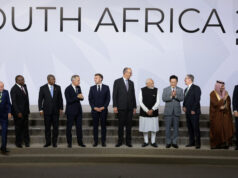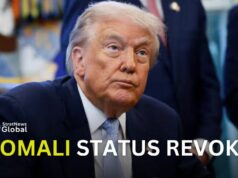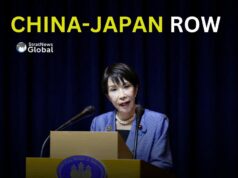The Panama Canal, one of the world’s most vital maritime chokepoints, has once again become the epicentre of geopolitical turbulence. In an interview with StratNews Global, Nilanthan Niruthan, Executive Director of the Center for Law and Security Studies in Colombo, warned that President Donald Trump’s aggressive posture in Latin America—marked by U.S. naval strikes on Venezuelan vessels—signals the return of old-style American militarism cloaked in new justifications.
“The Panama Canal is indispensable to the United States,” said Niruthan. About 6% of global trade and roughly $300 billion worth of cargo pass through it every year, with nearly three-quarters of that traffic linked to American ports. Though control of the canal was officially handed to Panama in 1999, a 1977 treaty still permits Washington to intervene militarily if its interests are threatened. “It’s arguably America’s most important chokepoint,” he noted, “and central to its geopolitical imagination.”
Trump’s campaign against “narco-terrorism” in the region, Niruthan argued, offers a convenient pretext to militarize the Caribbean and reassert dominance over what Washington has always viewed as its “backyard.” The recent targeting of Venezuela fits that pattern. “Trump’s supporters expect him to act tough,” he said. “He sees the Panama Canal as property America built with its blood and sweat—and he wants to reclaim control.”
China’s investments—over $2.5 billion in Panama’s infrastructure—have heightened U.S. anxiety. “That’s clearly a factor driving Trump’s moves,” said Niruthan, adding that Latin America is now another flashpoint in a world already on edge from conflicts stretching from Gaza to Ukraine and the Taiwan Strait.
For India and South Asia, he said, the implications are sobering. “New Delhi must ask itself: are we ready to acknowledge that Latin America is Washington’s sphere of influence, just as South Asia is ours?” He pointed out that the U.S. routinely engages with Pakistan and smaller South Asian states without regard to India’s sensitivities. “So should India now reciprocate and engage Latin American countries on its own terms, even if that irritates Washington?”
There are also military lessons. Transnational drug trafficking, which the U.S. cites as justification for its operations, could one day pose similar challenges in South Asia. “If the region doesn’t get its act together, we could face the same problems Latin America does—becoming a hub or transit point for global crime networks,” Niruthan warned.
Ultimately, he said, the episode underscores a harsh truth: “Might makes right—and the world had better adapt.”
In a career spanning three decades and counting, Ramananda (Ram to his friends) has been the foreign editor of The Telegraph, Outlook Magazine and the New Indian Express. He helped set up rediff.com’s editorial operations in San Jose and New York, helmed sify.com, and was the founder editor of India.com.
His work has featured in national and international publications like the Al Jazeera Centre for Studies, Global Times and Ashahi Shimbun. But his one constant over all these years, he says, has been the attempt to understand rising India’s place in the world.
He can rustle up a mean salad, his oil-less pepper chicken is to die for, and all it takes is some beer and rhythm and blues to rock his soul.
Talk to him about foreign and strategic affairs, media, South Asia, China, and of course India.




